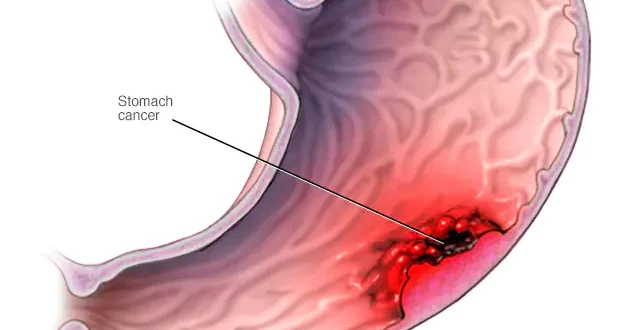Stomach cancer, also known as gastric cancer, is a serious condition that can be challenging to detect early. Understanding the symptoms and recognizing the early warning signs can significantly impact diagnosis and treatment outcomes. In this comprehensive guide, we will explore the common symptoms of stomach cancer, what to be aware of, and when to seek medical attention.
Understanding Stomach Cancer
1. What is Stomach Cancer?
Stomach cancer begins in the lining of the stomach and can spread to other parts of the digestive system or beyond. It is one of the less common cancers but can be particularly dangerous due to its often subtle early symptoms. Stomach cancer can vary in severity and may develop from pre-existing conditions like chronic gastritis or stomach ulcers.
2. Risk Factors for Stomach Cancer
Several factors can increase the risk of developing stomach cancer, including:
- Helicobacter pylori infection: A bacterial infection linked to stomach ulcers.
- Family history: A family history of stomach cancer can increase risk.
- Diet: High consumption of smoked, salted, or pickled foods.
- Age and Gender: More common in older adults and slightly more prevalent in men.
- Lifestyle Factors: Smoking and excessive alcohol consumption.
Common Symptoms of Stomach Cancer
1. Persistent Abdominal Pain
One of the most common symptoms of stomach cancer is persistent abdominal pain or discomfort. This pain may be dull or sharp and often persists despite changes in diet or medication. If you experience continuous abdominal pain, it’s essential to consult a healthcare professional.
2. Unexplained Weight Loss
Significant and unexplained weight loss can be a red flag for stomach cancer. If you are losing weight without trying, and it is not explained by changes in diet or exercise, it’s important to seek medical advice to rule out serious conditions.
3. Nausea and Vomiting
Frequent nausea or vomiting, especially if it is persistent and not related to other causes, can indicate stomach issues, including cancer. In some cases, vomiting may contain blood or resemble coffee grounds, which warrants immediate medical attention.
4. Difficulty Swallowing
Difficulty swallowing or a feeling of food getting stuck in the throat or chest can be a symptom of stomach cancer. This may be accompanied by pain or discomfort while eating.
5. Loss of Appetite
A noticeable loss of appetite, accompanied by feelings of fullness after eating small amounts of food, can be a symptom of stomach cancer. This may be due to the tumor affecting the stomach’s ability to process food.
6. Persistent Indigestion
Chronic indigestion, bloating, or a feeling of fullness, particularly if it does not improve with over-the-counter medications, can be an early sign of stomach cancer. This symptom is often confused with less serious digestive issues, making it crucial to monitor for other signs.
When to Seek Medical Attention
1. Consulting a Healthcare Professional
If you experience any of the symptoms mentioned above, especially if they are persistent or worsening, consult a healthcare professional. Early diagnosis and treatment are critical for improving outcomes.
2. Diagnostic Tests
To diagnose stomach cancer, your doctor may recommend several tests, including:
- Endoscopy: A procedure to examine the stomach lining and take biopsies.
- Imaging Tests: Such as CT scans or ultrasounds to check for tumors.
- Blood Tests: To check for anemia or other signs of cancer.
FAQ About Stomach Cancer Symptoms
Q: What are the early signs of stomach cancer?
A: Early signs of stomach cancer may include persistent abdominal pain, unexplained weight loss, nausea, and difficulty swallowing. However, symptoms can vary and may be subtle.
Q: How can I differentiate between stomach cancer and other stomach issues?
A: While some symptoms of stomach cancer can overlap with other conditions, persistent and severe symptoms, especially when accompanied by other warning signs like weight loss or difficulty swallowing, should be evaluated by a healthcare professional.
Q: Is there a cure for stomach cancer?
A: Treatment for stomach cancer depends on the stage and may include surgery, chemotherapy, radiation therapy, or targeted therapies. Early detection often improves the chances of successful treatment.
Q: How can I reduce my risk of stomach cancer?
A: To reduce your risk, consider a diet rich in fruits and vegetables, avoid smoking and excessive alcohol consumption, and address any chronic conditions like Helicobacter pylori infection with your doctor.
Q: When should I see a doctor if I have symptoms?
A: If you experience persistent symptoms like abdominal pain, unexplained weight loss, or difficulty swallowing, consult a healthcare professional promptly for evaluation and diagnosis.
Read more International Women’s Day 2024: Celebrating Women’s Achievements and Advocating for Gender Equality
Conclusion
Recognizing the symptoms of stomach cancer early can make a significant difference in treatment and prognosis. Being aware of the common signs, understanding the risk factors, and seeking medical advice when necessary are essential steps in managing your health. If you or someone you know is experiencing symptoms, don’t hesitate to reach out to a healthcare professional for a thorough evaluation.

